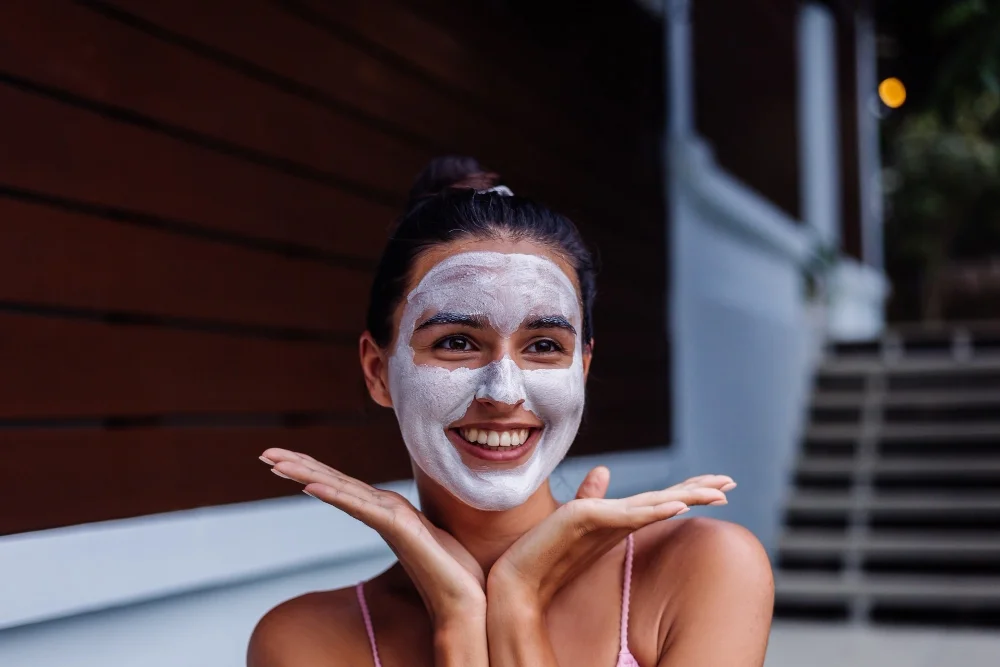Dubai’s dazzling skyline, luxurious lifestyle, and constant sunshine make it one of the most vibrant cities in the world. However, this same sunny climate also brings unique challenges for skin health. Intense heat, high UV exposure, and low humidity can cause dehydration, skin pigmentation, and premature skin aging. Amid this environment, many residents and visitors seek effective skin treatments to rejuvenate and renew their skin, and chemical peels are often at the top of that list.
But is it really safe to get a chemical peel in Dubai’s hot and sunny climate? Let’s explore this question in depth by understanding how chemical peels work, what precautions are necessary, and how you can maintain glowing skin even in extreme weather conditions.
Understanding What a Chemical Peel Is
A chemical peel is a cosmetic treatment designed to improve the appearance and texture of the skin. It involves applying a specially formulated chemical solution to the skin’s surface, which gently exfoliates the outer layers. This process encourages the growth of new, smoother, and healthier skin.
Chemical peels come in various strengths: superficial, medium, and deep, depending on the level of exfoliation required and the specific skin concerns being addressed. Superficial peels target the top layer of the skin, while deeper peels reach into the middle layers to address more severe concerns such as acne scars, wrinkles, and sun damage.
The procedure is widely used to treat:
-
Fine lines and wrinkles
-
Uneven skin tone and pigmentation
-
Acne and post-acne marks
-
Rough or dull skin texture
-
Sun damage and age spots
When done correctly by a licensed dermatologist or aesthetic practitioner, chemical peels can produce remarkable results, revealing radiant and youthful-looking skin.
How Dubai’s Climate Affects Your Skin
Dubai’s weather is characterized by intense heat for most of the year. Average temperatures during summer often exceed 40°C, and even during the cooler months, the sun remains strong. The desert air can quickly sap moisture from the skin, leading to dryness, irritation, and sensitivity.
The high UV index throughout the year is another major concern. Prolonged exposure to UV radiation can accelerate skin aging, increase pigmentation, and damage the skin barrier. Therefore, any treatment that temporarily makes the skin more sensitive, such as a chemical peel, must be approached with extra care in this environment.
However, that does not mean chemical peels are unsafe in Dubai it simply means they require professional guidance, the right timing, and diligent aftercare.
Safety of Chemical Peels in a Hot Climate
The safety of a chemical peel depends on three key factors: the type of peel used, the expertise of the practitioner, and the post-treatment care followed by the patient.
In Dubai’s sunny climate, superficial and mild peels are generally considered safe and effective. These lighter peels remove only the outermost layer of the skin and have minimal downtime. They can help reduce pigmentation, smooth rough patches, and restore a natural glow without significantly increasing sun sensitivity.
On the other hand, medium and deep peels penetrate deeper layers of the skin and therefore require greater caution. These treatments are best performed during the cooler months when sun exposure is less intense, or under controlled indoor conditions where post-procedure care can be more closely monitored.
Precautions Before Undergoing a Chemical Peel
Before scheduling a session for a chemical peel in Dubai, it’s essential to take certain precautions to protect your skin and ensure the best results:
-
Consult a Qualified Dermatologist
Always seek consultation from a board-certified dermatologist or an experienced skin specialist. They can assess your skin type, medical history, and specific concerns to recommend the most suitable type of peel. -
Avoid Sun Exposure
Minimize direct sun exposure for at least one to two weeks before your appointment. Excessive tanning or sunburn can increase the risk of irritation and uneven results. -
Discontinue Certain Products
Avoid using products containing retinoids, exfoliating acids, or strong actives like Vitamin C, a few days before the treatment, unless advised otherwise by your doctor. -
Hydrate Well
Keep your skin well-hydrated before the procedure. A moisturized skin barrier helps reduce post-treatment sensitivity and aids in recovery.
Post-Treatment Care and Sun Protection
After a chemical peel, your skin becomes temporarily more sensitive to sunlight. This is normal because the outer protective layer has been exfoliated to reveal fresh skin beneath. Proper post-care is crucial to avoid complications and achieve the best results.
Here are some essential steps to follow after your treatment:
-
Apply Sunscreen Regularly
Use a broad-spectrum sunscreen with at least SPF 50 every morning, even if you’re indoors. Reapply every two to three hours when outdoors. Sunscreen helps prevent hyperpigmentation and protects healing skin. -
Avoid Direct Sunlight
Try to stay indoors during peak hours, especially between 10 AM and 4 PM. If you must go outside, wear a wide-brimmed hat and protective clothing. -
Keep Skin Moisturized
Use a gentle, hydrating moisturizer to soothe the skin and restore the barrier. Avoid products with alcohol, fragrance, or harsh ingredients.
Do Not Pick or Peel
As your skin begins to shed, resist the urge to touch or peel off the flaking skin. Let the exfoliation occur naturally to avoid scarring or infection. -
Follow Professional Advice
Always follow your dermatologist’s aftercare instructions carefully. They may prescribe specific post-peel products to promote healing and enhance results.
When Is the Best Time to Get a Chemical Peel in Dubai?
While chemical peels can be performed year-round, the ideal time to schedule them in Dubai is during the cooler months, from October to March. During this period, the sun is less intense, and humidity levels are slightly higher, making it easier for the skin to recover.
If you wish to undergo a treatment during the hotter months, it’s still possible with proper indoor care and diligent sun protection. Modern clinics in Dubai often provide tailored peels designed for the region’s climate, focusing on safety and minimal downtime.
Who Should Avoid Chemical Peels During Extreme Heat?
Certain individuals should consider postponing chemical peels during the peak summer months:
-
Those with active sunburns or skin inflammation
-
Individuals who cannot avoid outdoor exposure for work or travel
-
People with very sensitive or reactive skin
-
Anyone recovering from another facial procedure
Your dermatologist can help determine the best treatment timing based on your specific needs and lifestyle.
Benefits of Professional Peels in Dubai
Despite the hot climate, chemical peels continue to be one of the most sought-after skincare treatments in Dubai because of their remarkable benefits. When performed correctly, they can:
-
Brighten dull and uneven skin tone
-
Reduce the appearance of pigmentation and fine lines
-
Improve overall skin smoothness and clarity
-
Stimulate collagen production for long-term skin rejuvenation
Modern dermatology clinics in Dubai are equipped with advanced technologies and skin-safe formulations that minimize risks and maximize results, even in sunny conditions.
Conclusion
So, is it safe to get a chemical peel in Dubai’s hot and sunny climate? The answer is yes, but only when done responsibly. With proper professional guidance, customized treatment plans, and diligent sun protection, chemical peels can be both safe and effective, even under the city’s intense sun.
The key lies in selecting the right type of peel, choosing an experienced practitioner, and strictly following aftercare routines. With these precautions in place, you can enjoy smoother, brighter, and healthier skin throughout the year.
FAQs
1. Can I get a chemical peel during summer in Dubai?
Yes, but it’s best to choose a light or superficial peel and follow strict sun protection measures to minimize post-treatment risks.
2. How long should I stay out of the sun after a peel?
Avoid direct sunlight for at least one to two weeks. Always wear sunscreen when you go outside.
3. How often can I get a chemical peel?
Superficial peels can be done every 4 to 6 weeks, while deeper peels require longer intervals, usually several months apart.
4. Will a chemical peel help with pigmentation caused by the sun?
Yes, chemical peels can effectively reduce sun-induced pigmentation, provided you maintain good sun protection afterward.
5. Is it normal for skin to peel after treatment?
Yes, light flaking or peeling is part of the normal healing process and should subside within a few days. Avoid touching or picking at your skin.






